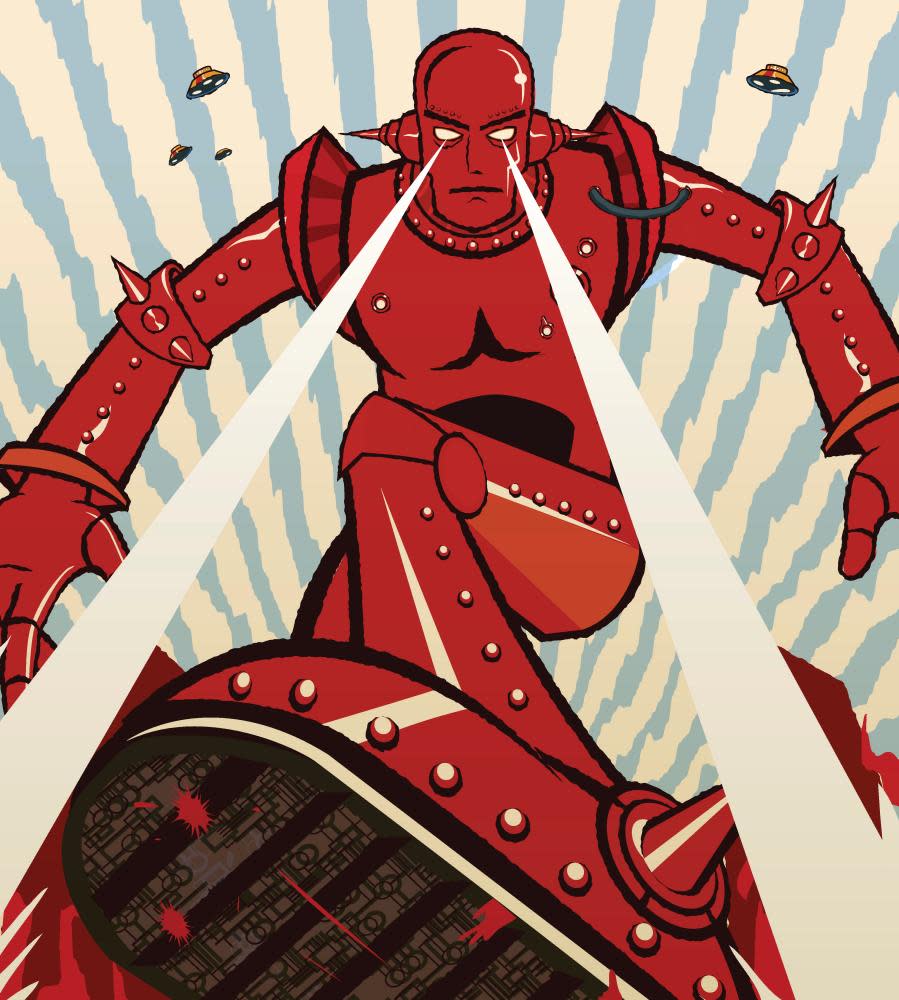This week we’re talking about … Robert Mugabe, jumping robots and the housing crisis

What are we talking about?
Zimbabwe’s non-coup, and Robert Mugabe’s resignation. And then non-resignation. And then his second resignation.
Wait … what?
In a fast-developing situation that will probably render this piece out-of-date before it’s even finished, there has been a gentle putsch in the country Nigel Farage probably still calls Rhodesia.
And while everyone expected the 93-year-old, who has been the leader of Zimbabwe since New Romantics were cool, to step down and spend more time designing badass yellow jackets and berets, he showed a dogged reluctance to release his grip on the reins of power.
So ... why are we talking about it?
Well, for a start, it’s nuts. And in the absence of the criminal charges half of the western world really wants to see, this will have to do.
A draft impeachment motion published by Mugabe’s own party, Zanu-PF, described Mugabe as a “source of instability” who has shown disrespect for the rule of law and is to blame for Zimbabwe’s near-total economic collapse. Shortly after the hearing began, Mugabe finally resigned.
The oddly moustached homophobe is also the source of some genuinely jaw-dropping quotes: “I am still the Hitler of the time. This Hitler has only one objective: justice for his people, sovereignty for his people, recognition of the independence of his people and their rights over their resources. If that is Hitler, then let me be Hitler tenfold.”
And there’s plenty more where that came from: “Sometimes you look back at girls you spent money on rather than send it to your mum and you realise witchcraft is real.”
Let’s see Morrissey or Ken Livingstone match that.
What are we talking about?
Wait … what?
Machines that can replicate complex human movements could herald near-universal unemployment, which some optimists view as desirable. But most of us aren’t ready.

So ... why are we talking about it?
There are a few technology-driven shocks in our immediate future. Look at what happened to the music business once people figured out how to illegally download albums. Now think about what will happen to the rest of the entertainment industry once 3D printing comes of age and people figure out how to illegally download televisions.
But all that’s a taster to the main event. What happens when those robots you’ve seen jumping over boxes in cute YouTube videos learn to build houses, drive trucks or … gulp … write lightweight news articles?
We’re going to need some sort of universal basic income to not only prevent the legions of unemployed from starving, but also keep the wheels of commerce turning. After all, it doesn’t matter how many cars, computers and cat-litter trays the robots build if no one can afford to buy them.
Given the five-star balls-up the government made of universal credit, the introduction of the immeasurably more complex universal basic income doesn’t exactly make the heart swell with optimism.
Maybe someone can design a robot Iain Duncan Smith to sort it out?
What are we talking about?
Buying a house. And how if you want one all you have to do is give up sandwiches. For 42 years.
Wait … what?
Getting on to the property ladder used to be difficult. Now it’s nigh-on impossible. The chancellor is working on it, but is anything he does going to make a real difference?

So ... why are we talking about it?
In 1996, about 2.7 million 20- to 34-year-olds were living with their parents. In 2017 the figure is more like 3.4 million. If you prefer percentages, that’s a rise from 21% of that age group to 26%. There’s a gender split too: if you just look at young men, that rises to 32%.
You might reasonably ask, is there actually any point buying a house? It’s a comparatively new, and very British, obsession.
Well if you don’t mind us straying on to the bleak side of the road for a minute, voters who can’t buy a house when they’re young won’t have a home to sell when they eventually need to pay for care in older life.
Any amount of governmental fudging – such as the abolition of stamp duty on homes worth less than £300,000 – is only going to make a cosmetic difference. There’s only one way that today’s young generation are going to get themselves a house.
And you’ll only read this simple trick right here: persuade your parents to become MPs. What do MPs have? Second homes.
Getting into the House of Commons used to be difficult. Now it’s impossibly easy. Just look at the news. They’ll let any idiot in.
Check out the We Need To Talk About… podcast with guests musician Frank Turner, comedian Mark Thomas and Kate Forrester from the Huffington Post, available to stream on Spotify now.

 Yahoo News
Yahoo News 
